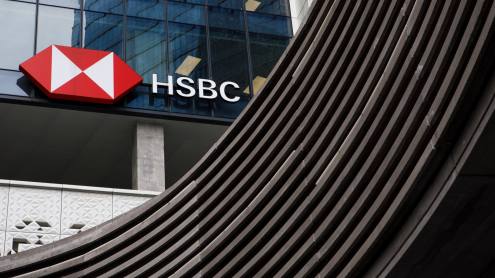Only 20% of finance professionals rate their current team as ‘highly effective’. Suboptimal teamwork results in actual and opportunity costs: groupthink, poor capital usage, decreased profitability, attrition, lack of inclusion, and environmental, social and governance failure.
Given most banks contain hundreds, if not thousands, of teams, maximising their effectiveness is a key and often untapped competitive advantage.
However, the dynamics of the financial services (FS) industry can promote certain ‘dark side’ behaviours that seriously inhibit teamwork: competition, distrust, greed, vanity and exclusion. Drawing on my research report interviewing senior leaders across banking and other financial sectors, I analyse the roots of these behaviours using systemic and psychodynamic psychology.
By understanding more profoundly the psychological challenges of their industry, teams learn how to mitigate them and instead build highly effective, value-creating teams.
Difficulties generating deep trust
For more than 10,000 years, humans worked in predominantly localised tribal and family groupings, building deep, long-term bonds of stability. However, the more distanced nature of 21st-century banking — communicating on virtual platforms, across borders, in often rapidly changing teams — reduces and deconditions our experiences of bonding and psychological safety.
Without this, we are more likely to regress into defence mechanisms (competing, withdrawing or withholding our opinions).
The high stakes and volatility of the global banking system also mean ‘strong’ behaviours become culturally preferred. As one interviewee said: “Displaying vulnerability or doubt is rare. There’s protectionism: if I show weakness, I’ll get hurt.” Facing unpredictability, humans seek stability, gravitating towards those who project certainty. We learn to hide our personal doubts and vulnerabilities, creating groupthink and stifling innovation.
Deep trust only forms through displays of reciprocal authenticity and knowledge-sharing. Leadership teams especially need to make intentional space for reflection and learning from each other to create the cohesion needed for idea generation, healthy debate and decision-making.
Competition, belonging and anxiety
The impersonality of large organisations challenges our deep human need for belonging. Unlike our social groups, many banks require continual hard work and commitment to maintain our place — being reachable at all hours, doing ‘what it takes’, absorbing psychologically complex reorganisations.
There is also a huge disparity between our individual influence and the size and power of our employers, particularly global banks. To combat this, we compete for limelight and profile, building the social capital we hope will guard us against the emotional pain of being ejected from the system.
High standards in many banks espouse an ethos of needing to continually ‘prove yourself’, with the threat of ‘cull’ ever present. Without adequate recognition of our efforts as human beings, we feel anxiety, shame and inadequacy. These are not stupid or irrational feelings; validation from others is a normal human need.
The psychologist Wilfried Bion saw that groups operating under high pressure often move into conflict or internal competition to avoid confronting their anxiety. To mitigate this, teams need to become excellent in giving supportive and developmental feedback and codifying processes for dispute resolution.
Greed, compensation and unmet needs
Rather than portraying greed as an individual failing, we see something different through a societal lens. Many societies are witnessing a decreased sense of community; increased singlehood; longer working hours impinging upon intimate relationships and reduced recreational time for sex. What appears as a lust for money may instead be a means of seeking ‘compensation’ for unfulfilled emotional and psychological needs.
Accumulation can also be an unconscious way to seek power over painful experiences of death and loss. In an age of existential threats — Covid, war in Ukraine, eco-anxiety — we may hope that building a bigger pot of capital will (somehow) protect us against future pain.
Vanity
Bankers are subject to huge psychological projections. The media hype ‘geniuses’; investors hope for spectacular returns; society creates financial ‘heroes and villains’. Subject to these, it is hard for any of us to resist inflating our sense of self. The more we are seen as a source of brilliance and mastery, the more others are likely to feed it (e.g. the idealising of Bernie Madoff and wilful blindness to his behavioural ‘red flags’ by investors and regulators).
Genuine inclusion
Inclusion is still a major challenge. The 2016 Social Mobility Commission found banks recruit for “familiarity, similarity and perceived ‘fit’”. A 2021 Women in Banking & Finance report highlighted how differently women feel treated compared to male counterparts.
Efforts to create equality can leave incumbents feeling anxious; cultural changes may threaten their status and position. Lacking a clear vision of what they can move towards, they remain inert, passive or silently resistant. Inclusion efforts fail to achieve their aims without full allyship.
To combat this, leadership teams need to lead their organisations in answering: what can we do better with a more diverse and included workforce? They must draw the link from diversity of thought to the innovation challenges faced and make clear how this will benefit all their futures.
How can leaders and teams address these challenges?
Many team development efforts remain superficial because they operate solely at the level of personality. This is far too simplistic. Rather, team dynamics result from conscious and unconscious hopes and fears; pressures from stakeholders, investors and regulators; societal shifts; industry innovations; and changing client needs.
By exploring the fullest range of influences upon them, teams understand more profoundly the assumptions, emotions and dynamics driving their collective behaviour. Using an independent coach trained in team and group psychology helps significantly.
With a coach, the team learns how to maximise the quality of their idea generation, decision-making, meetings and execution. This enhances innovation, cross-team collaboration, retention and engagement.

Duncan Lewin is a team and executive coach with over 10 years’ experience coaching financial teams and leaders, following his earlier career as a chartered accountant and finance director.







